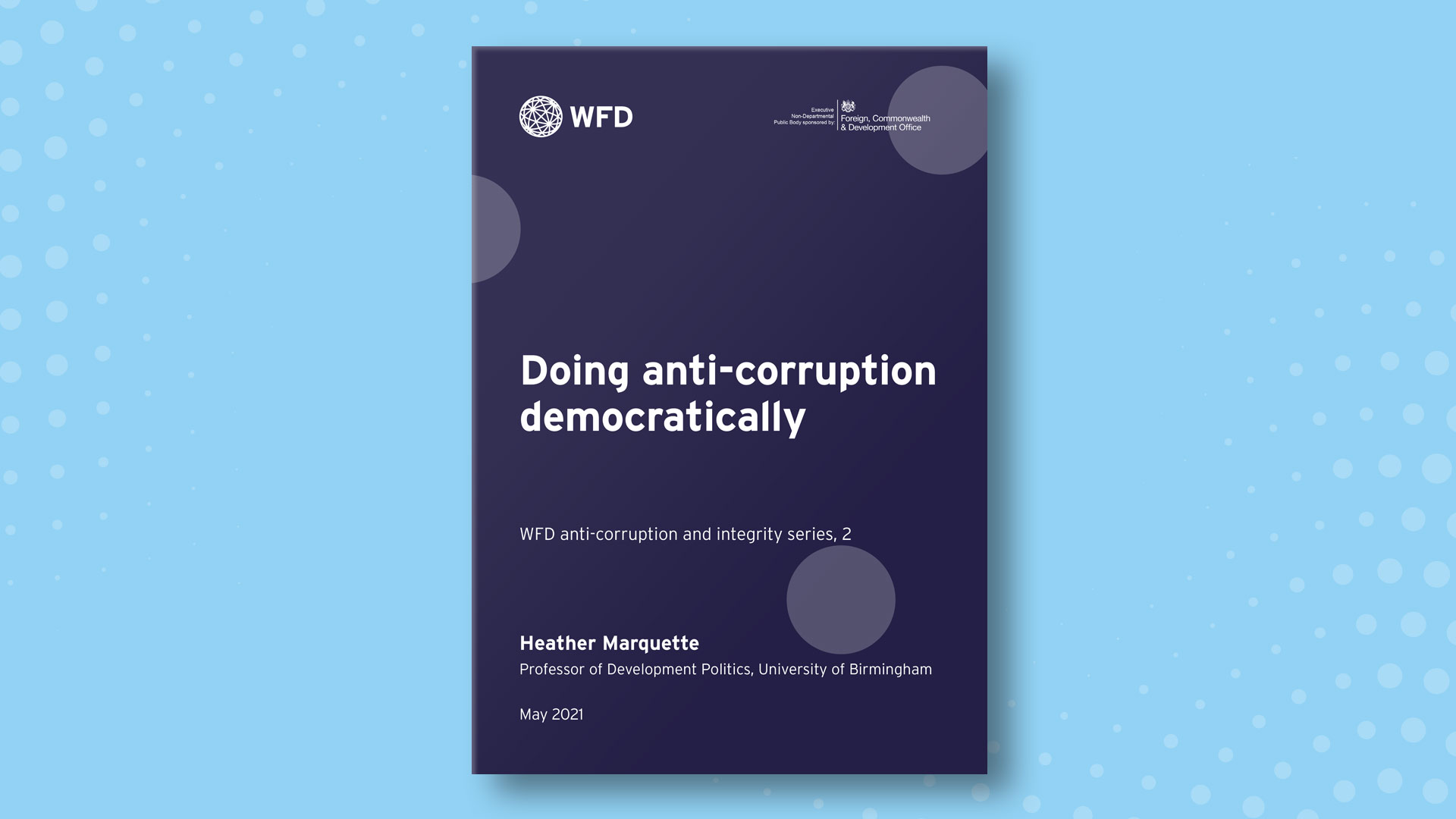The first ever UN General Assembly Special Session (UNGASS) against corruption will take place in New York from 2 to 4 June 2021. UNGASS 2021 represents a unique opportunity to strengthen our collective anti-corruption efforts. With that recognition, WFD has released a new policy brief on ‘Doing anti-corruption democratically’ that outlines the complementary reality of democracy and anti-corruption.
Corruption is an aspect of poor governance that undermines trust in politics and in each other. It fuels protest, populism, and anger. It keeps a corrupt and dishonest government in power and undermines national security. It undermines our efforts to tackle COVID-19 and will undermine our attempts to ‘build back better’.
Despite almost 30 years of the global anticorruption agenda, the consensus seems to be that something is clearly not working when it comes to addressing corruption. For instance, from 2012 to 2020 Transparency International’s Corruption Perceptions Index (CPI) suggests worrying trends: while 26 countries have seen improvements during this period, 22 others have seen significant decreases, while the rest have seen no improvements for the whole period.
Research on anti-corruption approaches emphasise that there is no ‘one size fits all’ solution to corruption, and that attempts to tackle corruption must be context specific. WFD commissioned a policy paper that shows that democracy and anti-corruption are complementary, and that we can ‘do anti-corruption democratically’ in poor and rich countries in ways that are politically informed.
The author of the paper Heather Marquette – Professor of Development Politics, University of Birmingham – writes,
“Not everyone working on anticorruption will care about democracy, but for those of us who think about anti-corruption as a means rather than an end – who care about democracy, open societies, human rights and social justice in particular – this means getting serious about ‘doing anti-corruption democratically’.”
The paper suggests that we should focus our attention on developing a better understanding of what to do differently in three areas:
- Tackling the global systems that enable corruption and weaken democracy, including illicit finance, tax havens and professional enablers as well as the leaders who use these systems to ‘whitewash’ their reputations and prevent reform.
- Strengthening the democratic oversight systems needed to tackle corruption at the national level, so that democracies can better combat corruption capably and that impunity, perceived or otherwise, can be addressed.
- Having more honest conversations about the ways in which fighting corruption may not work and may even weaken democracy, which includes being prepared to better test ways in which we can do things differently to how we do things now.
This policy paper is the second publication released under WFD’s anti-corruption and integrity series, 2021. The series brings together applied research on aspects of corruption and anti-corruption. The first policy brief was on ‘Rethinking strategies for an effective parliamentary role in combatting corruption’.

